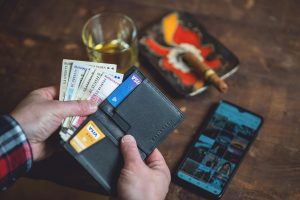Consumer Behavior as Self-Expression: Identity Through Purchases
In today’s consumer-driven world, our purchases are often seen as a reflection of who we are. Whether it’s buying the latest fashion trends, upgrading to the newest technology, or supporting a particular brand, our buying behavior is closely tied to our sense of self. This phenomenon is known as consumer behavior as self-expression, where our purchasing decisions go beyond fulfilling our needs and wants, and instead help us shape and convey our identities.
The Psychology of Self-Expression Through Purchases
Before we delve deeper into the concept of consumer behavior as self-expression, let’s first understand the basic psychology behind it. As human beings, we have a natural desire to communicate our thoughts, beliefs, and values to others. This communication can take various forms, including verbal and non-verbal cues, but one of the most common ways we express ourselves is through our possessions.
From the clothes we wear to the items we display in our homes, our belongings can speak volumes about our identities, beliefs, and aspirations. These possessions serve as symbols that communicate to others who we are and where we belong in society. As such, our purchasing decisions become a means of self-expression, as we carefully curate and craft a desired image through our belongings.
The Influence of Social Comparison
One of the main drivers of consumer behavior as self-expression is the human tendency to engage in social comparison. We constantly compare ourselves to others, whether it’s our peers, celebrities, or even strangers on social media. This comparison often leads us to make purchases that align with the image we wish to project and communicate to others.
For example, if a person wants to be seen as fashionable and trendy, they may purchase designer clothing brands and keep up with the latest fashion trends. By wearing these items, they are signaling to others that they are aware and updated on the current fashion scene, and therefore, part of a particular social group.
The Role of Branding in Self-Expression
Brands also play a significant role in consumer behavior as self-expression. Brands help us create and maintain a desired image or identity as they often come with a particular set of values and beliefs that we can align ourselves with. For instance, a person who values sustainability may choose to purchase from environmentally-friendly and ethical brands, as it represents their personal values and contributes to their self-expression.
Moreover, certain brands may have a cult-like following, creating a sense of belonging and exclusivity for their customers. By purchasing from these brands, individuals can communicate to others that they are part of a like-minded community and share common interests and values.
Understanding the Impact of Online Presence
In today’s digital age, our self-expression and identities are not only limited to our physical possessions but also extend to our online presence. With the rise of social media, our lives are now more visible and curated than ever before. As such, our purchasing decisions are highly influenced by the need to portray a certain image or lifestyle on our social media profiles.
From perfectly-placed product shots to showcasing luxury travel experiences, our online presence has become a means of self-expression and a way to communicate who we are to others. This has also led to the rise of influencer culture, where individuals use their social media platforms to showcase and promote certain brands, aligning themselves with their desired image and values.
The Dangers of Over-Identification with Possessions
While consumer behavior as self-expression can serve as a way for individuals to express their identities, it can also have negative consequences. Over-identification with possessions can lead to materialism and a constant need for external validation. This can result in individuals making purchases solely for the purpose of projecting a specific image, rather than fulfilling their true needs and wants.
Moreover, the pressure to keep up with an ideal image portrayed on social media can also lead to financial strain and create a false sense of self-worth based on material possessions. As such, it is essential for individuals to be aware of their purchasing behavior and not let it solely define their identities.
Conclusion
Consumer behavior as self-expression is a complex phenomenon that highlights the link between our possessions, identities, and societal norms and values. While our purchasing decisions can serve as a form of self-expression, it is important to strike a balance and not let it define our identities completely. As with everything, moderation is key, and individuals should be mindful of their behaviors and the underlying reasons behind their purchases.
In a world where consumerism is rampant and our possessions are constantly on display through social media, it is crucial to maintain a sense of self that goes beyond materialistic symbols. Our identities are multifaceted and should not just be limited to what we buy. Instead, it is important to focus on our values, beliefs, and relationships, as these are the true markers of our identities.











